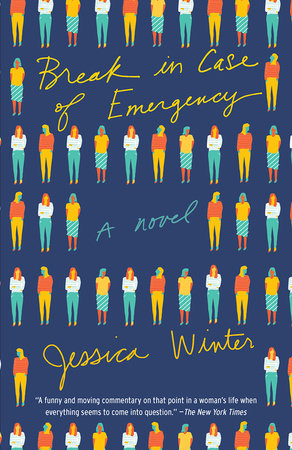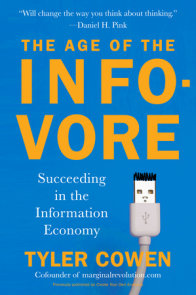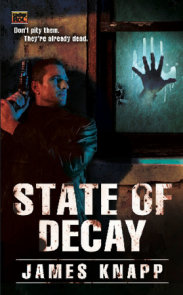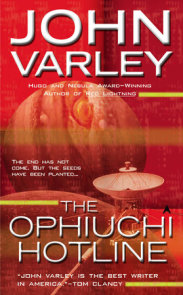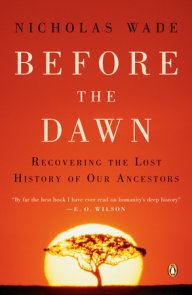READERS GUIDE
The questions that follow are intended to enhance your reading group’s conversation about Break in Case of Emergency, Jessica Winter’s sharp and compelling novel about the inner politics of a feminist start-up helmed by a washed-up celebrity, and how one employee struggles to integrate into its culture.Introduction
In her early thirties, Jen has all but abandoned a once-promising painting career when she takes a poorly defined job at a feminist nonprofit. The Leora Infinitis Foundation—or LIFt—claims to empower women, but staffers spend all their time devising acronyms for imaginary programs, ruthlessly undermining one another, and stroking the ego of their boss, a larger-than-life celebrity philanthropist.Stuck in this passive-aggressive hellscape, Jen struggles with insecurity, especially when she compares herself to her two best friends, Meg and Pam—one a wealthy attorney with a picture-perfect family, the other a passionately committed artist. When the personal and the professional begin to collide in the course of a fateful art exhibition, a surreal business trip, and a devastating loss, it forces Jen to reckon with some hard truths about herself and the people she loves most.
Questions and Topics for Discussion
1. The conversation around how to define feminism has become a cultural hot topic in recent years. Explore this phenomenon alongside the mission of LIFt. How does feminism become a commodity in the world of Leora Infinitas? How does this relate to the rise in feminist-related products or endorsements in the media today? Why does Leora reject feminism for “humanism”?
2. Financial security, or lack thereof, plays an important role in Break in Case of Emergency. Discuss the points of the novel wherein Jen’s class consciousness affects her well-being. How does financial insecurity affect her relationship with her friends? Her colleagues? Jim? When is she most acutely aware of how her relationship with money differs from that of her peers?
3. The culture of LIFt is heavily satirized, yet it is grounded in the realities of the modern workplace. Describe the office culture of LIFt—the language they use, the interactions between employees, and the expectations from management. How does Jen’s attitude toward LIFt fluctuate over the course of the novel? When does Jen conform to their standards, and why?
4. How female friendships evolve over time is an important component of Break in Case of Emergency. How would you describe the relationships between Jen, Meg, and Pam? What binds their friendships? How do their relationships change over the course of the novel? After Jen and Pam stop talking, how does Meg act as a conduit between them?
5. Mental health is a through-line in Break in Case of Emergency. At what points in the novel does Jen’s inner monologue seem brushed by depression and anxiety? How does she counteract the effects of her illness?
6. Describe Jen and Jim’s relationship. What comforts are afforded by their marriage? Why do you think Jen fought with Jim before the LIFt party? By the end of the novel, how did you interpret the health of their marriage?
7. Discuss Jen and Daisy’s working relationship. How does Daisy embolden Jen to rebel against her job? What is Jen’s greatest act of rebellion at LIFt? Do you think that Daisy emerges as the secret heroine of the book?
8. How is the identity of “artist” explored in Break in Case of Emergency? Why does Jen hesitate to describe herself as one, even as her friends and her husband define her that way? What is the true mark of being an artist, in Jen’s mind? Does she identify as one by the conclusion of the novel?
9. Jen’s miscarriage is an important aspect of the novel, yet it is never specifically called out as such in the text. Why do you think Winter chose to do this, from a stylistic perspective? How does this relate to the culture of silence around miscarriages? How does Jen derive comfort or solace in this situation? How does it affect her attitudes toward sex?
10. Describe Jen’s relationship with her mother. How does Jen’s mother’s chilly approach to parenting affect Jen’s self-worth? How does Jen view family as a result of her upbringing?
11. The scene wherein Jen asks Pam to participate in LIFt’s campaign is damaging to their relationship and acts as a turning point for Jen’s own mental health during the novel. Discuss the lead-up to this decision. Knowing the environment at LIFt, as well as Pam’s principles, why would Jen invite Pam into this situation? What was your reaction to the interview itself?
12. Discuss Karina and Jen’s trip to Belize. What was the purpose of Jen’s meeting with Baz? How did you interpret her conversation with Jim afterward? How did this trip affect Jen’s understanding of herself? Her ambitions?
13. On page 21, Pam asks Meg, “If a snake ate its own tail, do you think Jen would apologize to the snake?” How does the import of this statement echo throughout the novel? How does Jen’s lack of assertiveness affect her relationships? When does Jen seem most confident?
14. Describe Jen’s interaction with Flossie Durbin. How does Durbin’s evaluation of Jen’s art relate to the class consciousness that Winter describes throughout the novel? What compels Jen to ask for a commission for the painting?
15. How does the news of Pam’s marriage and pregnancy affect Jen? How does it destabilize her understanding of her friend? Their relationship?
16. Jen and her friends are at a very transitional point in their lives: marriage, children, home ownership, and career moves are all described and dissected in great detail. What did you find most relatable about Winter’s portrayal of this stage of life?







